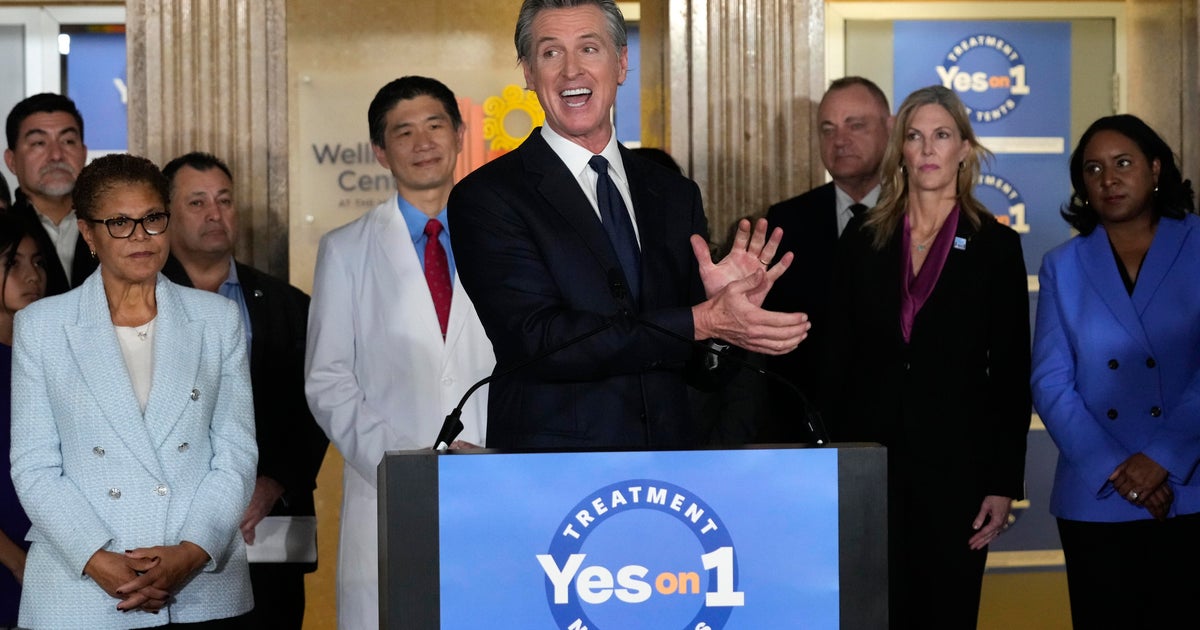/ KCAL News
CA voters pass Proposition 1, measure aimed at tackling state's homeless crisis
A statewide ballot measure aimed at overhauling California's mental health care system, primarily through the issuance of nearly $6.4 billion in bonds, has been approved by voters.
Proposition 1 is a two-pronged measure backed heavily by Gov. Gavin Newsom and a host of Southland elected officials, including Los Angeles Mayor Karen Bass and county Supervisors Hilda Solis and Janice Hahn. Backers of the measure say that it will dramatically increase access to treatment beds and supportive housing, but opponents claim it would slash funding for already successful programs.
It took more than two weeks for the vote tallying process to be completed, with the officials results being announced on Wednesday.
County officials across California will now be required to redirect money to create drug and mental health treatment beds and bolster their response to lessen the homeless issue that many major cities face.
According to Newsom's office, the proposition is slated to create 11,150 behavioral health treatment beds across the state, along with housing and 26,700 outpatient treatment slots. Roughly $1 billion of the bond measure is earmarked specifically for veterans.
"This is the biggest change in decades in how California tackles homelessness, and a victory for doing things radically different," Gov. Newsom said in a statement. "Now, counties and local officials must match the ambition of California voters. This historic reform will only succeed if we all kick into action immediately – state government and local leaders, together."
What happens now that Prop. 1 passed?
Since Proposition 1 is a bond measure, there will be no immediate impact on taxes. However, California is now slated to take on the new debt proposed in the measure — $6.4 billion — and pay it back with interest.
Additionally, counties will now be required to change some of their mental health care and drug or alcohol treatment services, shifting some of the focus to housing and personalized support services.
The money for Proposition 1 will come in two methods, primarily the issuance of $6.38 billion in bonds and also through a re-apportionment of funds generated by the Mental Health Services Act, which was passed by California voters in 2004, and it imposed a 1% income tax on people earning more than $1 million per year. Funds from that measure are largely directed to counties for mental health programs, but Proposition 1 would give the state control over much of the funding.
The Associated Press suggests that annual revenue from the tax runs between $2 billion and $3 billion a year, providing one-third of the state's mental health budget.
Counties will be required to spend around two-thirds of the funds on housing and homeless outreach programs for people with serious mental health illness or substance abuse problems.
The bill also authorizes California to borrow more than $6 billion to build 4,350 housing units. Half of the units would be reserved for veterans and add nearly 7,000 mental health and addiction treatment beds.
